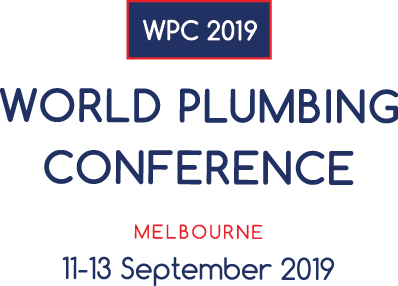FROM THE CHAIRMAN - SHAYNE LA COMBRE
I am pleased to report we have taken important steps in identifying and pursuing worthwhile contributions to the global plumbing industry and the broader community, including:
A further pleasing and very recent development is the 26 November appointment of Mr BSA Narayan to the WPC Executive Board, representing the Indian Plumbing Association - see the newsletter article below. I am glad to be able to report to World Plumbing Council Members and stakeholders that the WPC meetings and events held in October this year in Abu Dhabi were both constructive and informative. As described in more detail in separate articles and summaries contained within this newsletter, the Abu Dhabi events included an Executive Board meeting, a General Meeting and a series of very impressive and informative presentations for the first Four Pillars of Plumbing event. At the General Meeting I provided an overview of the WPC’s activities and initiatives since the prior General Meeting in March. I also raised several of the key administrative and resourcing challenges the Council is facing. The Council continues to have a strong balance sheet and the 2017 operating profit has improved substantially compared to 2016 (because operating costs formerly paid by WPC are now being borne by Directors’ organizations) but longer term the WPC’s current financial model is unlikely to be sustainable. Over the next year the WPC will need to either gain more funding or reduce its activities. That is why over the period to the next General Meeting in May next year (in Los Angeles) the WPC will have a new focus on improving its revenue. Executive Board members have been asked to help develop sponsorship and grant prospects within their home countries and any advice or other support from Members on this issue will be very welcome. Please do not hesitate to contact me or the WPC Secretariat. The successful inaugural forum for the Four Pillars of Plumbing initiative in Abu Dhabi included seven outstanding presentations covering the approach taken to training requirements for plumbing industries in the United Kingdom, Switzerland, Brazil, Canada, USA, India and Australia. In addition to the content of the presentations and details of the expert presenters being accessible via this newsletter and on the WPC website, we are investigating using webinars to have a more engaging record of the presentations and to communicate them to a global audience. The General Meeting and Four Pillars events took place alongside the 2017 WorldSkills Competition in Abu Dhabi and a highlight during my trip was presenting WPC medallions to the WorldSkills Competitors and their accompanying Experts (coaches) in the Plumbing & Heating event. Medallions have been presented at past WorldSkills Competitions but this year we expanded our recognition to include honorary WPC memberships for the Competitors, Experts, the corporate sponsors of the event, the Competitors’ employers and the Competitors’ training providers. We were keen to give due recognition to all those supporting the development of plumbing excellence, including those behind the event as well as the direct participants. The articles in this Newsletter include the October Executive Board Meeting and General Meeting, the first Four Pillars of Plumbing Forum, the expanded program of support for World Plumbing Day celebrations, the upgraded 2018 WPC scholarships program and further development of WPC as a global level communications hub. A further article describes my recent meeting with former Australian Prime Minister The Honourable Kevin Rudd in his role as Chair of Sanitation and Water For All (SWA), a UN body working through a network of over 200 national governments and non-government organisations to raise the priority and funding of sanitation and water supply services. I have been invited to address an SWA Ministerial Meeting in March 2018 in Mumbai, and WPC has applied to join the SWA partnership. This edition of the Newsletter has news about the prize winners in the Plumbing & Heating event at the 2017 WorldSkills Competition and the highly successful Community Plumbing Challenge completed recently in Jakarta Indonesia. Our general interest articles include a description of both the huge challenge faced by India in trying to upgrade the country’s sanitation and water services and the huge effort being made to meet this challenge, led by Prime Minister Modi. Upgrading plumbing skills is a vital part of this effort, and the Indian Plumbing Association and the Indian Plumbing Skills Council are leading a drive to improve plumbing skills and plumbing industry standards overall. Other general interest articles range from congratulations to the former WPC Chairman Robert Burgon for becoming Master of the Worshipful Company of Plumbers to a report on a major seminar in China addressing water supply and drainage issues. The China seminar was arranged by the Plumbing Facilities Committee of the China Construction Metal Structures Association, an active Full Member of the WPC chaired by WPC Director Liu Jian. We also take the opportunity to notify Members about upcoming Four Pillars of Plumbing and General Meeting events on 17 May 2018 in Los Angeles and 25 to 27 October 2018 in Mumbai, along with other plumbing industry events being held around the world.
On 18 October 2017 the Executive Board held a meeting in Abu Dhabi, United Arab Emirates. The meeting was very productive, with important decisions being made in relation to the operations of the World Plumbing Council in key portfolios and programs. The Chair and other Directors reported on activities and initiatives - both underway and in the planning phase - relating to Four Pillars of Plumbing, World Plumbing Day, WPC scholarships for plumbing trainers, communications, Community Plumbing Challenge, membership administration, alliances with related organizations and more. Subsequent newsletter articles covering the General Meeting and specific WPC portfolios give details about current operations and planning for the World Plumbing Council. Several days prior to the Executive Board meeting Mr John Joseph resigned as a WPC Director, as he is no longer a member of the National Executive Committee of the Indian Plumbing Association. At both the Executive Board meeting and at the General Meeting, the Chair expressed thanks to John Joseph for his valuable contribution the Executive Board, the World Plumbing Council and the plumbing industry more broadly.
The World Plumbing Council held a General Meeting in Abu Dhabi, United Arab Emirates, in the morning of 19 October 2017. The Chair and Directors reported on WPC activities over the seven months since the prior General Meeting and canvassed present and future challenges and priorities for the Council. Most of the agenda for the meeting was addressed through reports from the Chair and other Executive Board members for their individual portfolios of responsibility. The reports and other discussion in the meeting are summarised below, and several portfolios are discussed in more detail in newsletter articles which follow. The following is a summary of the WPC General Meeting held in the morning of 19th October 2017 in Abu Dhabi, United Arab Emirates. Welcome & Acknowledgments
Finance and Governance Portfolio
World Plumbing Day Portfolio
Marketing and Communications Portfolio
Education and Training Portfolio
Planning, Organisation, Membership and Resources Portfolio
WPC Highlight Report: Community Plumbing Challenge
Four Pillars of Plumbing Forum
ABU DHABI FOUR PILLARS OF PLUMBING PRESENTATIONS The World Plumbing Council wants strong industry frameworks for plumbing industries, and the Council believes plumbing industries can achieve better frameworks by learning from each other. The Four Pillars event in Abu Dhabi consisted of presentations from the United Kingdom, Switzerland, Brazil, Canada, India, the USA and Australia. Click on Read More for a summary of the presentations and links to the presentation materials. The October 2017 Forum in Abu Dhabi was the first event in the Four Pillars program. The first phase of the Four Pillars of Plumbing initiative will culminate in the World Plumbing Conference in September 2019 in Australia, with ‘How do you create a successful plumbing industry?’ as its core theme. Key points:
2. Switzerland Presented by Hans-Peter Kaufmann, Director, suissetec: “How Switzerland reassesses the profession’s training requirements. Case study – apprenticeships” Key points:
Key points:
Presented by Mike Gordon, Training Specialist, UA Canada: “The Plumbing Trade in Canada” Key points:
5. India Presented by Chintan Daiya, Director, D'Plumbing Consultants and Varun Tandon, Vice President, Indian Plumbing Skills Council: “Plumbing Training in India” Key points:
Presented by Tom Bigley, Director Plumbing, United Association, “2017 Plumbing Training Requirements in the United States” Key points:
7. Australia Presented by Noel Abercromby, Director, MPA Skills Plumbing: “Training Plumbers and Gasfitters in Australia” Key points:
UPCOMING FOUR PILLARS OF PLUMBING EVENTS Two major Four Pillars of Plumbing events have already been planned for 2018. The first is at the Double Tree Hilton in Ontario California on 17 May 2018. This event will focus on the Products dimension of the Four Pillars framework. A brief (8.00am to 10.00am) General Meeting of the World Plumbing Council will also be held on 17 May, immediately prior to the Forum. In addition, during the week beginning 14 May the Double Tree Hilton will also host the Emerging Water Technology Symposium (15-16 May), IAPMO Hearings for the Uniform Plumbing Code and Uniform Mechanical Code (15-18 May) and a meeting of the Plumbing Industry Leadership Council (17 May). The second event is a two day Indian Plumbing Conference with a Four Pillars of Plumbing theme being held by the Indian Plumbing Association, with support from the World Plumbing Council, at the Nehru Science Centre during 26 and 27 October 2018 in Mumbai. The Mumbai conference will have four streams covering all four ‘Pillars’ - Participation, Practices, Products and Protection. Conference organisers will target Asia, Oceania and Middle East participation as well as inviting international speakers presenting best practice models. The Indian Plumbing Association is intending a major event, with more than 1,000 participants and large number of exhibitors. The IPA will arrange a partner program and is considering making arrangements for post-conference trips to the nearby beautiful city of Goa. The Mumbai Four Pillars Conference will be preceded by an Executive Board meeting and a WPC General Meeting in the morning and afternoon of 25 October respectively.
APPOINTMENT OF BSA NARAYAN TO THE WPC EXECUTIVE BOARD
BSA Narayan brings a wealth of technical expertise, plumbing industry knowledge and plumbing association experience to the Director position. He is Managing Director of Maple-Engg Design Services in Bengaluru and holds Bachelor of Science and Bachelor of Civil Engineering degrees. He is a Life Member of the Association of Consulting Civil Engineers, a Member of the Institute of Engineers and a Fellow of the UK Chartered Institute of Plumbing & Heating Engineers. Mr Narayan was nominated to the Bureau Of Indian Standards in 2012 to carry out a revision of the National Building Code-India and successfully completed the revision in 2016. He heads the Technical committee of the Indian Plumbing Association.
ACKNOWLEDGEMENT OF JOHN JOSEPH SERVICE As noted above in the report of the 18 October meeting of the WPC Executive Board, Mr John Joseph resigned as a WPC Director several days prior to the Executive Board meeting. At both the Executive Board meeting and the General Meeting, on behalf of the World Plumbing Council as a whole, the Chair Shayne La Combre expressed sincere thanks to John Joseph for his long involvement with the Council and his valuable service on the Executive Board. The Chair will write to Mr Joseph and the Council will issue a certificate of service in appreciation of his important contribution to the WPC and the plumbing industry more broadly.
WORLDSKILLS PLUMBING AND HEATING COMPETITORS AND SUPPORTERS WorldSkills International held another outstanding WorldSkills Competition, in Abu Dhabi from October 14 to 18 2017. The event showcased the talents and training of 1,300 young people from 59 WorldSkills Member countries across 51 skills competitions. This was the first time the WorldSkills Competition has been held in the Middle East region. In the Plumbing and Heating event, two Gold Medals, four Bronze Medals and nine Medallions for Excellence were awarded. The Gold Medal winners were Armin Taxer of Austria and Marcel Wyss of Switzerland. The Bronze Medal winners were Nima Hosseinpoursaloukolaei (Iran), Hyeongwook Kim (Korea), Björn Landin (Sweden) and Daniel Martins (United Kingdom). The World Plumbing Council congratulates all those who competed in the Plumbing & Heating event.
Leading WPC Member, the International Association of Plumbing and Mechanical Officials (IAPMO) made a major contribution to the success of the 2017 Competition by becoming one of the major sponsors – a Global Partner – of WorldSkills International. The WPC thanks WorldSkills, IAPMO and a range of other sponsors and supporters for staging an international event that is growing in scale and industry significance year on year. The vitally important role of WorldSkills was summed up by the Chief Executive Officer of The IAPMO Group, former WPC Chair, Russ Chaney who said: “Our partnership with WorldSkills is a conduit to connecting leading talents and new ideas – from international vocational education and training sectors – with critical water and sanitation-related issues, across the world." Simon Bartley, President of WorldSkills, said to the competitors “Whether you are leaving here with a medal or not you all leave here as champions; individuals who have reached higher than you could ever have imagined when you started your journey three years ago. I salute you, everybody in this arena salutes you, the world salutes you”. |
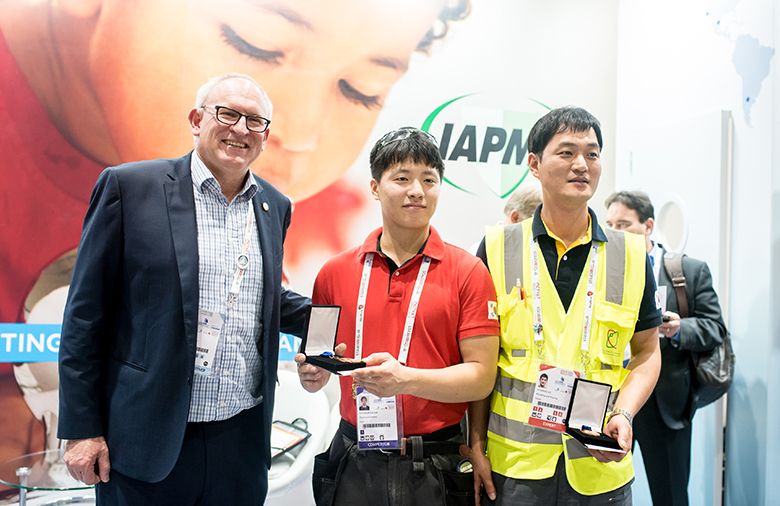 |
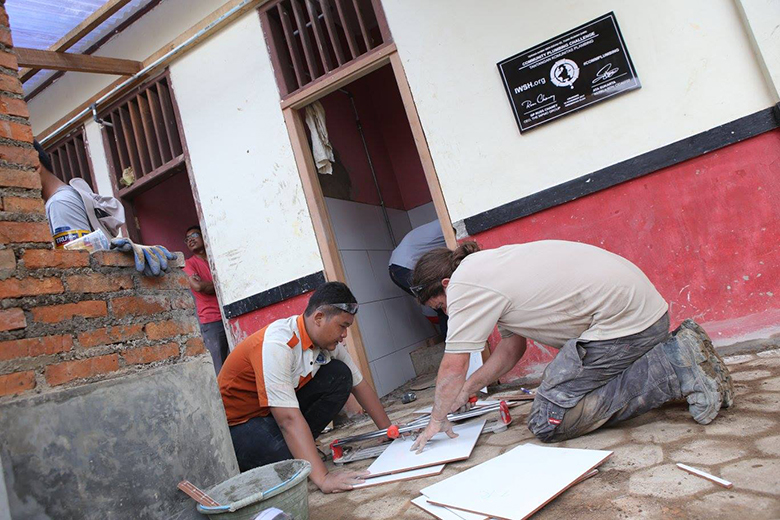 |
COMMUNITY PLUMBING CHALLENGE IN INDONESIA AND FUTURE PROJECTS
The international Community Plumbing Challenge (CPC) is an annual event held by the International Water, Sanitation and Hygiene Foundation (IWSH) The IWSH Foundation was established by the IAPMO Group and is actively supported by the World Plumbing Council along with other supporters and sponsors. CPC 2017 took place in Cicau Village, Cikarang, Bekasi, West Java Indonesia. This CPC had two stages, beginning with the Design Week in August and culminating with the Construction Week 9 to 15 November. CPC 2017 was a great success, significantly improving water supply, sanitation and hygiene provision for a school with 300 students that has lacked adequate facilities. See the outstanding video of Construction Week at https://youtu.be/ZFWUXyOoI4w. The video was produced by a team from the School of Science & Technology in Singapore, who have also been responsible for the videos at prior CPCs. Further information on IWSH activities is available at www.iwsh.org/. The project was a unique learning and skills exchange opportunity for plumbing professionals from the host nation Indonesia and the visitors from India, the United States and Australia. The project included extensive involvement with the local community and a subsequent upgrade phase will be carried out by teams from Indonesian technical colleges building on knowledge gained during the Design and Construction Weeks. Interestingly, an involvement in the project by local contractors and other stakeholders has resulted in steps toward the first ever plumbing industry association in Indonesia. |
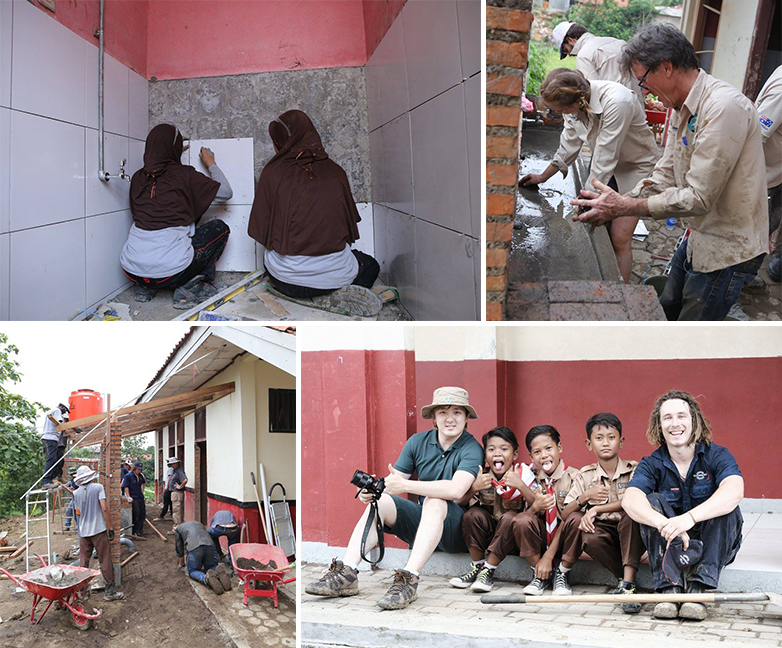 |
More broadly the IWSH Community Plumbing Challenge program aims to contribute to improvements to public health in regions where communities are still threatened by a lack of basic sanitation and safe drinking water systems. The program was established to achieve the following objectives:
CPC2017 delivered a sustainable upgrade solution for water supply and wastewater at Sekolah Dasar Negeri (SDN) Cicau 02 School. During Design Week, an International Team comprising young plumbers, plumbing engineers and architects from Indonesia, India, Australia and the United States completed a surveying and design process over four days in full consultation with school management and with further input from teachers and schoolchildren. Prior to the CPC the village school had four toilets for 300 students and 12 staff with a very limited hand-washing stations. The CPC 2017 greatly improved the existing facilities by adding four new toilets and two hand-wash stations with three sets of outlets each. The international team also upgraded the water distribution system which is fed by gravity from an elevated tank and also added a septic tank and drainfield. Completing the project was a great achievement for all involved, and will add considerably to the health and well-being of the local community. Randy Lorge, one of the coaches for the CPC team, posted a daily blog on Facebook as the CPC was undertaken. He summed up the sense of satisfaction all the team members no doubt felt on completing the project: “The children were in class as well and the sounds of them learning, laughing and singing filled the air. I can’t even describe the amount of satisfaction that the team was feeling from the thought of accomplishing such a steep task.” Randy also noted that on the last day of the construction phase, and with coordination support from PT IAPMO Group Indonesia, area contractors, engineers, plumbing product manufacturers and standards officials undertook a joint tour the site. Many of the materials that were used to construct the plumbing system were donated from the various groups gathered. Reflecting the value of the CPC to local industry as well as the local community, the group that gathered pledged to form the first-ever plumbing association in Indonesia. For the first time in this country’s history, an effort will be made to bring these groups together to work toward standardizing the various aspects of plumbing, which will significantly lead to better plumbing conditions for all of Indonesia in the coming years. The group gathered for a press conference on site as well and posed for pictures in front of a plaque that was donated in commemoration of the work that our team did and for this historic day in Indonesian plumbing history. Congratulations to all involved in the very successful CPC2017. The International Water, Sanitation & Hygiene Foundation will now review options for a host site for the CPC2018, with hurricane affected regions being prominent in considerations, as well as the potential to return to Nashik, India, the location of the 2015 Challenge.
WPC ROLE IN COMMUNITY AND ECONOMIC DEVELOPMENT:
WPC MEETING WITH SANITATION AND WATER FOR ALL Improvements in water and sanitation services, particularly in less developed countries, are being pursued by a large number of global, national and local bodies, ranging from the United Nations to Rotary Clubs. What is the World Plumbing Council’s role in plumbing-related community and economic development? The unique way the WPC can contribute is by being a global level voice for plumbing within the myriad efforts to improve access to clean water and good sanitation. A well informed plumbing industry representative can advise plumbing-related community development efforts about matters ranging from technical practicalities to developing the needed plumbing industry capabilities. More specifically, drawing on the Community Plumbing Challenge experience, the WPC can advocate for water and sanitation development activities based on a ‘plumbing industry to plumbing industry’ strategy.
In addition, the WPC can contribute by directly supporting development projects and encouraging the global plumbing industry to similarly support these types of efforts. The Community Plumbing Challenge, managed by the International Water, Sanitation and Hygiene Foundation, established by The IAPMO Group, is the focus of WPC’s direct support for development projects and the WPC will aim at expanding this support over time. The WPC will also aim at playing a coordinating and channeling role to better harness the huge resources of the global plumbing industry in the cause of community and economic development.
NEW SUPPORT FOR WORLD PLUMBING DAY CELEBRATIONS
The prize for best video is US$2,500 and the prize for most innovative promotion of the plumbing industry’s contribution is US$1,000. The WPC will also issue award certificates and give recognition to the winners. We are redesigning and producing new WPC support materials for World Plumbing Day celebrations, including car stickers, brochures and a poster. These materials and a Chair’s Message for the 2018 World Plumbing Day will be available no later than the end of January. We ask Members to forward videos and reports of innovative promotions as soon as possible after the World Plumbing Day date of 11 March. We have set 11 April as the deadline for entries for the competitions. Directors agreed the WPC’s support for World Plumbing Day should focus on increasing involvement by the plumbing industry itself, in particular the industry’s associations, and that production of videos, versus the past practice of a poster competition, is more effective in an era of social media. Innovation is difficult, but some long-standing Members of WPC have fond memories of the Plumbing Song produced by Chai Wai Chon of the Singapore Plumbing Society in 2012 and we are hoping to prompt new ideas. An unusual approach is more likely to gain media coverage and the aim of World Plumbing Day is to raise the community’s appreciation of the plumbing industry. As a result of this shift, the poster competition for primary/elementary schools will not be held for the 2018 World Plumbing Day. The Board also decided that WPC support for recognition of the plumbing industry’s role and celebration of World Plumbing Day will be more effective if it operates on a regional basis. As an initial step in this direction, Director Liu Jian will have responsibility for supporting World Plumbing Day celebrations in China and Director Kevin Wellman to have responsibility for Europe, while Director Alberto Fossa in Brazil retains overall responsibility for the portfolio and a regional responsibility for South America. Over coming months the Executive Board will explore avenues for further regionalisation arrangements, for Africa, North America, Middle East, India, other parts of Asia and Oceania. We ask Members to consider volunteering to assist World Plumbing Day celebrations at a regional level. Please contact the WPC Director responsible for the World Plumbing Day portfolio, Alberto Fossa, on afossa@newencreative.com.br or the WPC Secretariat on secretariat@worldplumbing.org if you are able to assist.
All members of the plumbing industry are invited to apply for these scholarship programs. Each of the scholarships provides up to US$10,000 in funding to cover approved expenses. The 2016 Scholarship winners (who undertook their international studies in 2017), both made excellent use of their opportunity. The WPC Scholarships are intended to provide for an educational exchange between countries focusing on plumbing industry training, while at the same time exposing the participants to new technologies and innovations in training systems. They provide an opportunity to increase awareness of the contribution that plumbing has made to global health and the environment. Participants have an opportunity to gain knowledge of the Industry, technology, training and systems which can be applied to improve standards in their own countries. The program also enables participants to experience the culture, language and work practices of other countries and provides a platform for networking and relationship building. In 2017, the recipient of the Education and Training Scholarship was Ryan Marsh from South Africa. Ryan used the scholarship funds to undertake a study tour of Australia and Ryan is now applying his knowledge and experience to plumbing training in South Africa, at Northlink College in Cape Town. Ryan was appointed as a WorldSkills Expert to assist the South African Competitor in Abu Dhabi. Dr Nitin Mohite from Maharashtra State in India received the Developing or Least Developed Countries Scholarship and has completed a study trip to Germany, Switzerland and the Czech Republic along with producing an interim report. He has not yet finalised his planned scholarship activities, but the interim report suggests that he has made very productive use of the scholarship opportunity. Dr Mohite has undertaken, amongst other things, a detailed comparative analysis between the plumbing systems in India and European countries like Switzerland and Germany (which will be fed into the Four Pillars of Plumbing knowledge bank being developed by the WPC), and a series of informative site visits. Dr Mohite is now seeking opportunities to incorporate his newly acquired knowledge in his role in the Plumbing Training School at the College of Engineering Pune. The WPC Board is currently considering several ideas aimed at most efficiently using the Scholarships Program resources. For example, the WPC is considering modifying the program to encourage recipients to attend a regularly scheduled plumber training program in another country (such as the training provided by the United Association in Ann Arbor) in addition to the current option of a personally designed, customised study trip. It is also considering ways of ensuring that scholarship recipients make case study contributions to the Four Pillars of Plumbing program.
One of the great strengths of the WPC, and one which the Executive Board wants to make greater use of, is its extensive network of industry and community connections. When taken together, the significant networks of the individual WPC Executive Board and Members, form a vast web of stakeholder connections. As well as promotion and public awareness raising, the WPC envisages a growing role for itself as an international communications hub with respect to all things to do with plumbing and sanitation. To this end, the WPC has been, and will continue to throughout this Executive Board term, focus considerable effort on refreshing and updating its communication practices and systems. Through initiatives like the Four Pillars of Plumbing program, the Council will gradually build on its bank of international plumbing industry knowledge. As well as receiving and collating information provided to it, the WPC will increasingly look for opportunities to disseminate articles and information of interest to its members and stakeholders and, over time, develop more of its own content and promote it widely on social media and other platforms. The intent of the Executive Board is that over the coming months and years, and by receiving, storing, curating, distributing and promoting articles and materials of interest, the WPC’s status as a definitive point of plumbing industry reference will form and grow. WPC Director Dave Viola, who leads the WPC’s Marketing & Communications portfolio, has been driving the WPC’s upgraded contribution as a communications hub. As part of that process, the WPC has adopted an improved format and coverage of the Newsletter, initiated and reinvigorated social media channels (Twitter, LinkedIn, Facebook) and revised and updated its branding and website. These efforts are starting to have an impact, with higher levels of engagement being noted by several Executive Board members. However, to realise its goal of becoming the international focal point for information about the global plumbing industry(s), a higher level of engagement from all the WPC Members and stakeholders is required. We ask all WPC Members to support this effort, and the worldwide plumbing industry, by contributing information; “liking”, sharing, tweeting and re-tweeting posts and doing all they can to disseminate communications received from the WPC.
THE DRIVE TO UPGRADE PLUMBING SKILLS IN INDIA
India’s massive population continues to increase and its economy is growing rapidly, resulting in huge challenges for its already over-stretched – and in some areas non-existent – sanitation and water supply systems. Growing the skills base of the Indian plumbing industry workforce and the consequent ability to install and maintain sanitation and water services are crucial for India’s national development. The industry is aiming at increasing plumbing apprenticeships from 500,000 in 2016-17 to 1,500,000 in 2018-19. It is no wonder the government of Prime Minister Narendra Modi is so focussed on improving India’s water and sanitation facilities. India’s demographics are staggering, driving an urgent need to rapidly grow the quantity and quality of the country’s water supply and sanitation services. By 2020 India is expected to have 900 million people of working age, with tens of millions entering the workforce each year. The average age of its citizens is falling and will be below 30 (the youngest in the world) within three years. Forecasts suggest India will surpass China as the world’s most populous nation by 2022. The need to train workers up -- and quickly -- is paramount. Currently only 2% of India's workers have received formal skills training, according to a report by Ernst & Young (Reaping India’s Promised Demographic Dividend – Industry in Driver’s Seat 2013), compared with 68% in the United Kingdom, 75% in Germany and 96% in South Korea. Plumbing industry organizations including the Indian Plumbing Association (IPA) and the Indian Plumbing Skills Council (IPSC), both active Members of the WPC, are leading the development of plumbing skills in India. The IPSC is a Sector Skill Council operating within the ambit of the National Skills Development Corporation, an initiative of the Ministry of Skill Development and Entrepreneurship aimed at India becoming a major exporter of skills. In their presentation as part of the Four Pillars of Plumbing forum in Abu Dhabi, Chintan Daiya (Director, D’Plumbing Consultants) and Varun Tandon (Vice President, ISPC) identify the skill development challenges facing the plumbing industry and how the industry’s stakeholders are tackling these. The IPA and IPSC are determined to create a robust plumbing industry equipped with the skills needed by the Indian community and its economy. The challenges identified are a mix of cultural, structural and practical. Cultural taboos about plumbing have discouraged new entrants to the plumbing industry and stakeholders are working to change this perception and promote plumbing as a skilled and highly valuable career. Language challenges unique to India (two official languages, 23 recognized languages, 37 local languages) and highly complex variability in regulations, standards and occupational licensing across the large number of State, Territory and local jurisdictions within the country are further major hurdles that the plumbing industry is striving to overcome. While the Indian plumbing training goals are ambitious and face major challenges, a very impressive and exciting effort to meet the goals is underway, with strong leadership being shown by India’s plumbing industry associations and stakeholders. |
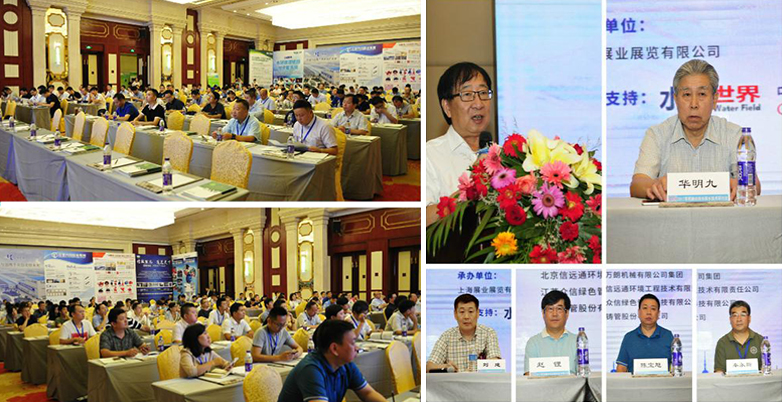 |
SHANGHAI SEMINAR ON WATER SUPPLY AND DRAINAGE On 6 September 2017, the Military and Civilian Integration’s Water Supply & Drainage Seminar was held in Shanghai. The event was organized by the Plumbing Facilities Committee of the China Construction Metal Structure Association, an active Full Member of the World Plumbing Council. The event featured a series of presentations from industry experts and sponsoring organizations. Mr. Liu Jian, Chairman of the Plumbing Facilities Committee and a Director on the World Plumbing Council Executive Board gave the opening speech at the Seminar. The seminar was attended by many prominent figures in the water supply and drainage sector in China. Multiple experts made presentations at the seminar on a range of topics, including:
Sponsors also made presentations covering technological advances in water saving, second water supply, stainless water cabins, PSP stainless pipe and other innovations. During the event, the Plumbing Facilities Committee held a prize giving ceremony for ‘National Building Water Supply and Drainage Trade Famous Trademark 2015-2016’ awards. Mr. Hua Mingjiu also renewed the membership of the PFC experts committee. Leading figures in the industry attending the seminar included:
The professional designers, plumbing experts, engineers and representatives of plumbing industry businesses at the event were very pleased to have an opportunity to join together to share experiences of plumbing. Several other meetings were held coinciding with the seminar. These included the 2017 BWT exhibition, the 2017 Steel and Plastic Pipe Annual Meeting, and the Urban Water Supply Safety and High-Quality Drinking Water Technology BBS. Mr. Hua Mingjiu, on behalf of the Plumbing Facilities Committee, expressed sincere thanks to the sponsors, speakers and other participants. This series of events was supported by the following enterprises (in random order):
WORLD TOILET DAY SUMMIT, MELBOURNE 20-21 NOVEMBER 2017 The World Toilet Organization and the Australian Water Association held the 16th World Toilet Day Summit in Melbourne Australia over November 21st and 22nd 2017. The Chair and Secretariat of the World Plumbing Council attended the event and other participants included a wide range of experts and key stakeholders in the global water and sanitation services sector. The outstanding set of speakers at the Summit included representatives from: WaterAid Australia; Water, Sanitation, Hygiene and Health unit, World Health Organization; Monash Sustainable Development Institute; Urban Development Department, State of Maharashtra, India; Australian Department of Foreign Affairs & Trade; UNICEF; Water & Sanitation Rotarian Action Group and Sydney Water. The presentations are available at https://awa.sharefile.com/app/#/share/view/sb7b7609f8b74bd2b?. World Toilet Day, an official UN day observed on 19 November, was established in 2013 to draw attention to the fact that 4.5 billion people, or over half of the world’s population, lack access to safe sanitation. World Toilet Day seeks to raise awareness of the global sanitation challenge, including the disturbing fact that 892 million people still practice open defecation. The World Toilet Organization, based in Singapore, was founded and is still led by Mr Jack Sim. The World Toilet Day Summit is an annual event held at a different global location each year. The Principal Global Sponsor for the event was Reckitt Benckiser. The major presentations at the 2017 World Toilet Day Summit included:
WATERAID REPORT ON THE GLOBAL STATUS OF SANITATION SERVICES WaterAid recently released a new report, Out of Order. The State of the World’s Toilets 2017, describing the status of sanitation services globally – see www.wateraid.org. The report draws on the powerful information collected by the World Health Organization-UNICEF Joint Monitoring Programme (see www.washdata.org) and an impressive range of other sources to highlight the challenges and successes of countries working to improve sanitation services.
On the other hand, some countries – such as India - are making extraordinary gains in the availability of at least basic sanitation services. India has made great progress made under the Swachh Bharat Mission, which aims to eradicate open defecation from the country by October 2019. Moreover the United Nations has given greater recognition and priority to the importance of sanitation services in its Sustainable Development Goals and the activities of UN agencies.
SAFETY CULTURE AND ITS BENEFITS – AN OPPORTUNITY FOR THE PLUMBING INDUSTRY Plumbing Manufacturers International (PMI) is a trade association of plumbing product manufacturers. Its member companies produce most of the plumbing products in the United States. It functions as a sounding board for its members, a source for industry and market information, and as a coordinating and decision-making body for dealing with industry issues. It is active in many arenas as it helps develop and maintain standards and codes, and it works closely with US government agencies at all levels – federal, state and local. As outlined in an excellent article contributed by Ray Valek, of the PMI’s communications team, the PMI has an increasingly important role to play in fostering and driving a ‘safety culture’ for plumbing products and systems. This is especially true in light of the Flint Michigan water crisis, where, like in virtually all post-industrial societies, access to safe drinking water had been taken for granted.
UNDERSTANDING BACKFLOW – EDUCATION AND TRAINING IS THE KEY The concept of backflow prevention is quite simple, yet to truly understand it in the context of cross connection control, and have the knowledge and skill to test and repair backflow devices, requires a high level of ongoing training, writes Peter McLennan, President of the Backflow Prevention Association of Australia. Peter McLennan, an Individual Member of the World Plumbing Council, has been involved with backflow prevention since the late 1980’s. See www.bpaa.org.au
The European Bathroom Forum (EBF) was established in 2017 to promote the creation of an environmental Water Label for the bathroom space. The aim of this label is ensuring end users have reliable and updated information about the performance of bathroom products in matters such as water and energy consumption. The EBF is comprised of 57 European manufacturers and nine trade bodies and associations from the bathroom industry. This initiative by the bathroom industry has been conceived with the aim of contributing to the global goals of the European Commission in the field of sustainability and efficiency related to water and energy consumption. The EBF took a major step forward during the CERSAIE Ceramic Fair in Bologna, Italy in September 2018. The European Bathroom Forum (EBF) chose the CERSAIE Fair as the ideal platform to inform manufacturers, merchants, designers and politicians of this new forum, bringing all facets of the Industry together as one voice to promote the importance of water and energy efficiency within the bathroom environment. The EBF brings the whole water using bathroom products sector together. It acts as the conduit to politicians, on the important role that voluntary initiatives play on the delivery of efficiency measures, through good design, practice and education tools, providing consumers with easy to understand information, enabling an informed choice. Pietro Mariotti, Geberit Group and newly elected Chair of the European Bathroom Forum, commenced the presentation with a video on the importance of Industry taking a lead role in using water and energy wisely in the bathroom environment, thus ensuring natural resources for future generations. He presented the road map that will see the well-established European Water Label in full transition mode moving seamlessly to the recently launched Water Label. He extended an invitation to the Italian Bathroom Industry, the trailblazers for great design, to embrace the efficiency message and pledge their support to the Industry initiative, join the Forum and register their products on the Water Label. For further information contact info@europeanbathroomforum.org.
ROBERT BURGON ANNOUNCED AS MASTER OF WORSHIPFUL COMPANY OF PLUMBERS The World Plumbing Council congratulates Robert Burgon, on being appointed Master of the Worshipful Company of Plumbers for 2017-18. The Worshipful Company of Plumbers is one of the most ancient of the Livery Companies of the City of London, having served the City and the craft of plumbing continuously for over 650 years. Robert served as Chair of the World Plumbing Council for the 2008 to 2011 period, following six years of service as a member of the Executive Board. Robert was Chief Executive of the Scottish and Northern Ireland Plumbing Employers Federation for 28 years, as well as making other major contributions to the United Kingdom plumbing industry.
DATES FOR DIARY ISH India Powered by IPA, 22-24 February 2018, Bangalore International Exhibition Centre India The second edition of ISH India powered by IPA will be held 22 to 24 February 2018 at Bangalore International Exhibition Centre, alongside leading existing exhibition organizers and industry bodies such as Acrex India and Fire & Safety India Expo in collaboration with ISHRAE (Indian Society of Heating and Refrigeration Engineers), Fire & Safety Association of India and NürnbergMesse coming together with a vision to create ‘Build Fair Alliance’ in accordance with Indian government’s development vision for smart cities. World Plumbing Day Celebration, 9 March 2018, PICAC, Melbourne Australia World Plumbing Day Breakfast, 9 March 2018, Master Plumbers Queensland, Brisbane Australia Emerging Water Technology Symposium, 15-16 May 2018, Ontario California World Plumbing Council General Meeting and Four Pillars of Plumbing Forum, 17 May 2018, Ontario California World Plumbing Council General Meeting, 25 October 2018, Mumbai India Indian Plumbing Association 25th Indian Plumbing Conference, 26–27 October 2018, Mumbai India World Plumbing Council 12th Triennial World Plumbing Conference, 11-13 September 2019, Melbourne Australia ISH Frankfurt, 11-15 March 2019, Frankfurt Germany Contact secretariat@worldplumbing.org to provide an event report or request listing of an upcoming event.
|
|

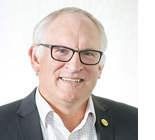 In the seven months since the prior General Meeting, the Executive Board has focused on improving the performance of the World Plumbing Council (WPC) and addressing fundamental questions about the Council’s mission and its focus on outcomes.
In the seven months since the prior General Meeting, the Executive Board has focused on improving the performance of the World Plumbing Council (WPC) and addressing fundamental questions about the Council’s mission and its focus on outcomes. 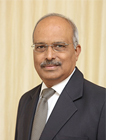 The WPC Chair and other members of the Executive Board have congratulated Mr BSA Narayan on his appointment as a WPC Director. Mr Narayan is a founding Member and current Vice President of the Indian Plumbing Association (IPA) and was nominated for the position by the President of the IPA Mr Gurmit Singh. The nomination period closed 25 November 2017 and, as the only nominee, Mr Narayan was immediately appointed.
The WPC Chair and other members of the Executive Board have congratulated Mr BSA Narayan on his appointment as a WPC Director. Mr Narayan is a founding Member and current Vice President of the Indian Plumbing Association (IPA) and was nominated for the position by the President of the IPA Mr Gurmit Singh. The nomination period closed 25 November 2017 and, as the only nominee, Mr Narayan was immediately appointed. 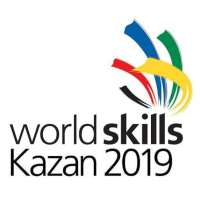 The next WorldSkills Competition will be held in Kazan Russia in 2019 and the WPC urges plumbing industries worldwide to enter a Competitor.
The WorldSkills event in Abu Dhabi was an outstanding success. At the Closing Ceremony in the du Arena, the Competitors, their support teams, 10,000 international visitors and an online global audience discovered who had won the coveted gold, silver, and bronze WorldSkills medals.
The next WorldSkills Competition will be held in Kazan Russia in 2019 and the WPC urges plumbing industries worldwide to enter a Competitor.
The WorldSkills event in Abu Dhabi was an outstanding success. At the Closing Ceremony in the du Arena, the Competitors, their support teams, 10,000 international visitors and an online global audience discovered who had won the coveted gold, silver, and bronze WorldSkills medals. 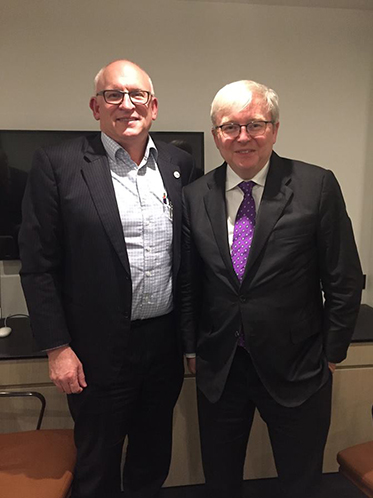 For example, the WPC Chair Shayne La Combre recently met with the Chair of Sanitation and Water for All (SWA), the Honourable Mr Kevin Rudd, a former Australian Prime Minister. SWA is a United Nations body that operates through a network of about 200 partners, comprised of over 60 national governments, non-government organisations (including the Bill & Melinda Gates Foundation) and private sector businesses. It is focused on governments raising the priority and funding of sanitation and water supply services in less developed countries. The Chair discussed the Four Pillars of Plumbing program and other WPC initiatives with Mr Rudd and he has been invited to address an SWA Ministerial Meeting (a gathering of approximately 60 government Ministers) in March 2018 in Mumbai India. For more information about SWA, visit
For example, the WPC Chair Shayne La Combre recently met with the Chair of Sanitation and Water for All (SWA), the Honourable Mr Kevin Rudd, a former Australian Prime Minister. SWA is a United Nations body that operates through a network of about 200 partners, comprised of over 60 national governments, non-government organisations (including the Bill & Melinda Gates Foundation) and private sector businesses. It is focused on governments raising the priority and funding of sanitation and water supply services in less developed countries. The Chair discussed the Four Pillars of Plumbing program and other WPC initiatives with Mr Rudd and he has been invited to address an SWA Ministerial Meeting (a gathering of approximately 60 government Ministers) in March 2018 in Mumbai India. For more information about SWA, visit 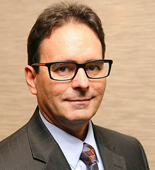 When the WPC Executive Board met in Abu Dhabi in October, the Directors confirmed their intention to refresh the Council’s approach to World Plumbing Day celebrations. For the 2018 World Plumbing Day, the WPC will hold two new competitions:
When the WPC Executive Board met in Abu Dhabi in October, the Directors confirmed their intention to refresh the Council’s approach to World Plumbing Day celebrations. For the 2018 World Plumbing Day, the WPC will hold two new competitions: 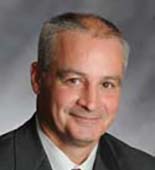 The World Plumbing Council offers two scholarship opportunities, one for applicants from Developed Countries (Education and Training Scholarship) and another for Developing or Least Developed Countries, which is generously sponsored by the United Association (UA).
The World Plumbing Council offers two scholarship opportunities, one for applicants from Developed Countries (Education and Training Scholarship) and another for Developing or Least Developed Countries, which is generously sponsored by the United Association (UA).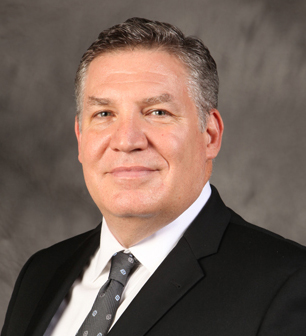 The WPC is exploring ways to better harness and expand its communication network, so that it can more effectively promote the work of the Council and the role of plumbing in human and environmental health more broadly.
The WPC is exploring ways to better harness and expand its communication network, so that it can more effectively promote the work of the Council and the role of plumbing in human and environmental health more broadly.  The effort needed to achieve adequate sanitation services in all countries is huge. Nearly 900 million people still practice open defecation. Sixty-one per cent of the world’s population, about 4.6 billion people, do not yet have access to a ‘safely managed’ sanitation service, defined as a hygienic household toilet where human waste is treated and disposed of safely – the type of sanitation service taken for granted in developed countries.
The effort needed to achieve adequate sanitation services in all countries is huge. Nearly 900 million people still practice open defecation. Sixty-one per cent of the world’s population, about 4.6 billion people, do not yet have access to a ‘safely managed’ sanitation service, defined as a hygienic household toilet where human waste is treated and disposed of safely – the type of sanitation service taken for granted in developed countries. 